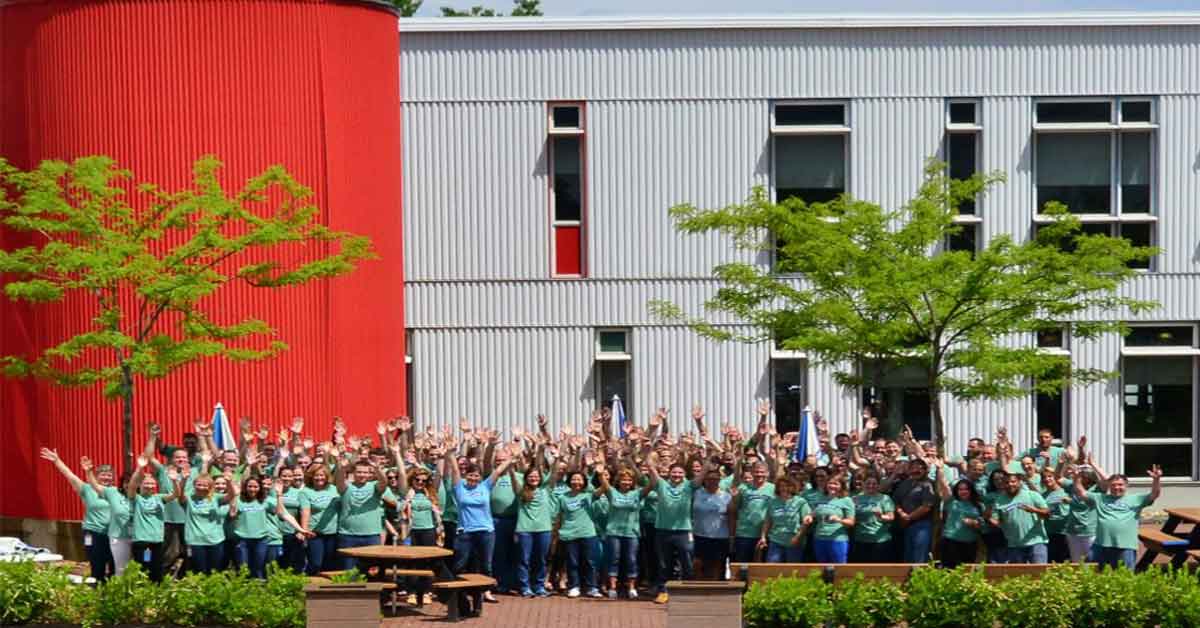Stonyfield Yogurt Commits to Reducing Emissions Thirty Percent by 2030
August 15, 2019
webmaster@push10.com

Stonyfield has always been committed to a Healthy Planet and that compels us to address climate change. As an organic food company, we’re close to our supply chain, and we know that food and farmers are on the front lines of climate change impacts. There is near global consensus on the urgency for action. The Intergovernmental Panel on Climate Change, an international group of scientists convened by the United Nations, reported this week on the urgent need to prevent further degradation of land by humans, and emphasized that agriculture and the food system are key to global climate change response. Here at Stonyfield, we are taking action that is right for our business, our employees, the farmers we rely on, our consumers, and the world.
Addressing climate change by transitioning to a low carbon economy is an opportunity – one that will make us a stronger, more resilient and innovative business. We can improve efficiency and drive cost savings. We will reduce risk by transitioning away from fossil fuels and their volatility. We can improve farmer viability through soil health and carbon markets. We can inspire and empower employees through a shared vision. In doing so, we also hope to inspire consumers and exceed their expectations for how business can contribute to solving the climate change challenge. So really, the question is why not?
Our New Commitment
In 2017 after the announcement that the U.S. would be pulling out of the Paris Climate Agreement, Stonyfield joined with thousands of others to say “We Are Still In”. In 2018, we dug deeper into measuring our carbon footprint, advocated for clean energy policy in DC and our home state of New Hampshire, and developed a partnership with organic dairy and educational farm, Wolfes Neck Farm to advance technologies that will enable farmers to measure and reduce emissions and build soil health while sequestering carbon. More than half of Stonyfield’s greenhouse gas emissions are associated with agriculture and our new project called OpenTEAM will help us turn that around so that farmers can be part of the solution.
Now Stonyfield has announced that we have made a commitment to reduce the carbon footprint of our operations and supply chain by 30% by 2030, even while we continue to grow. Our goal has been validated by the Science Based Target initiative (SBTi) to be consistent with reductions required to keep global warming to 2°C, the key objective in the Paris Climate Agreement.

A 30% reduction in greenhouse gas emissions is no joke. Our actions must meet the scale of response needed to reduce greenhouse gas emissions to the point where we stabilize Earth’s climate. Stonyfield is proud to be among a small group of global business leaders who have committed to a science-based target. Fifty U.S. businesses have targets validated by SBTi and we need many more to step up to plate. SBTI aims to make science-based target setting standard business practice and if successful, corporations around the globe will be fully committed to playing a major role in addressing climate change.
Farther, Together
We know we can’t achieve this feat alone. We’re working with coalitions of other businesses to raise the bar on sustainability and climate including the Ceres Policy Network, known as Businesses for Innovative Climate and Energy Policy (BICEP), New Hampshire Businesses for Social Responsibility (NHBSR), B Corps, and the Climate Collaborative.
We invite businesses and organizations of all kinds to answer the call and see the unique opportunities they have to transition to a low carbon future. You can even start carbon farming in your own backyard! Planting gardens and trees can help draw carbon out of the atmosphere and into the soil. Check out our tips on healthier lawns and gardens.
Together, we can solve climate change and create a healthier, safer, cleaner world.

